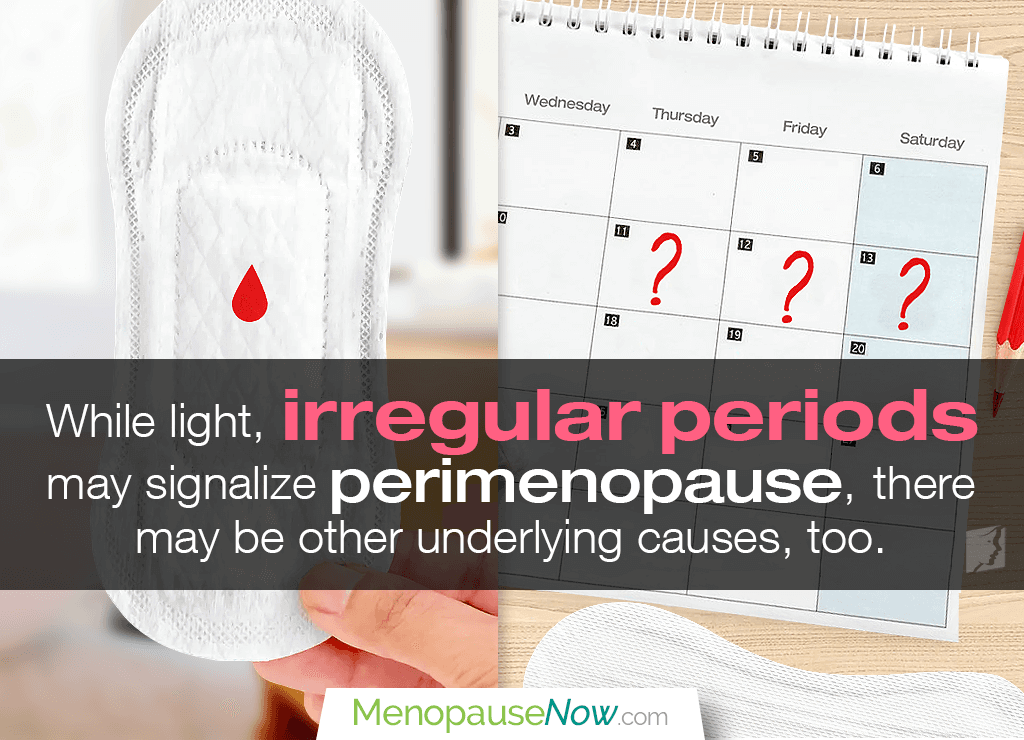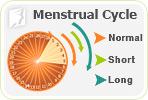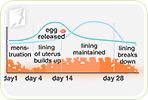In general, most women are able to get to know their menstruation cycle, and can not only anticipate when bleeding is likely to occur, but also how light or heavy it will be and when. With this in mind, it can understandably cause confusion and concern if a period is suddenly very light, or appears unexpectedly. There can be a number of causes for this change, but for women aged over around 40, the most likely cause will be perimenopause.
What Is Perimenopause?
Sometimes referred to as the “menopausal transition,” perimenopause describes the period of time when menopausal changes begin. It encompasses all symptoms which occur because of the fluctuation of reproductive hormones at this time, one of which being light, irregular periods.
Why Might Periods Be Lighter during Perimenopause?
Throughout perimenopause, the body's natural production of the reproductive hormone estrogen begins to decline; however, it is a gradual process. When there is a specific dip in estrogen, the lining of the uterus is thinner - meaning a lighter bleed during the period. Conversely, when estrogen levels are higher, this can lead to a heavier flow. As well as being light or heavy, these changes can also cause periods to be shorter or longer lasting.
What Are Some Other Causes of a Light Periods?
While perimenopause is the most likely reason in older women, it is possible for light menstruation to occur because of other factors. Some of the most common reasons for light, irregular periods include:
Pregnancy. It is widely known that periods tend to stop if you become pregnant; however, some women do experience some light bleeding - or spotting - particularly during the early months. This can sometimes occur at the time when a period was expected, causing alarm or confusion in some women.
Stress. When a woman becomes stressed, it can impact on the functionality of the hypothalamus - the portion of the brain that influences the behavior of reproductive hormones. In some women, it is possible to have lighter, or even no periods at all.
Birth control. There are a number of hormone-affecting contraception's such as the pill, which can impact on flow. Women with a particularly heavy period are often prescribed such medication in order to lighten the bleed.
Weight loss or gain. Women who lose or gain a significant amount of weight can often find that their periods are affected. Those who suffer with eating disorders in particular can encounter light - or even vanished - periods, due to the changes of hormonal activity that occur when underweight.
Polycystic ovary syndrome (PCOS). This condition is unfortunately relatively common, and involves the development of small cysts in the ovaries. One symptom of it can be light or fewer periods, because ovulation occurs less frequently.
If you are concerned about the lightness, or absence of your periods, it is important to discuss your circumstances with a doctor. While it is likely that there will be a common reason which does not warrant concern, it is possible that there is a more serious health matter to blame.
Sources
- American Pregnancy Association. (2017). Am I Pregnant? FAQs on Early Pregnancy. Retrieved June 20, 2017, from http://americanpregnancy.org/getting-pregnant/pregnancy-faq/
- National Health Service UK. (2015). Irregular periods. Retrieved June 20, 2017, from http://www.nhs.uk/conditions/Periods-irregular/Pages/Introduction.aspx
- Mayo Clinic. (2014). Amenorrhea. Retrieved June 20, 2017, from http://www.mayoclinic.org/diseases-conditions/amenorrhea/basics/causes/con-20031561
- Mayo Clinic. (2016). Perimenopause. Retrieved June 20, 2017, from http://www.mayoclinic.org/diseases-conditions/perimenopause/symptoms-causes/dxc-20253775
- Medline Plus. (2016). Abnormal uterine bleeding. Retrieved June 20, 2017, from https://medlineplus.gov/ency/article/000903.htm
- Our Bodies Our Selves. (2011). What to Expect in Perimenopause. Retrieved June 20, 2017, from http://www.ourbodiesourselves.org/health-info/what-to-expect-perimenopause/




